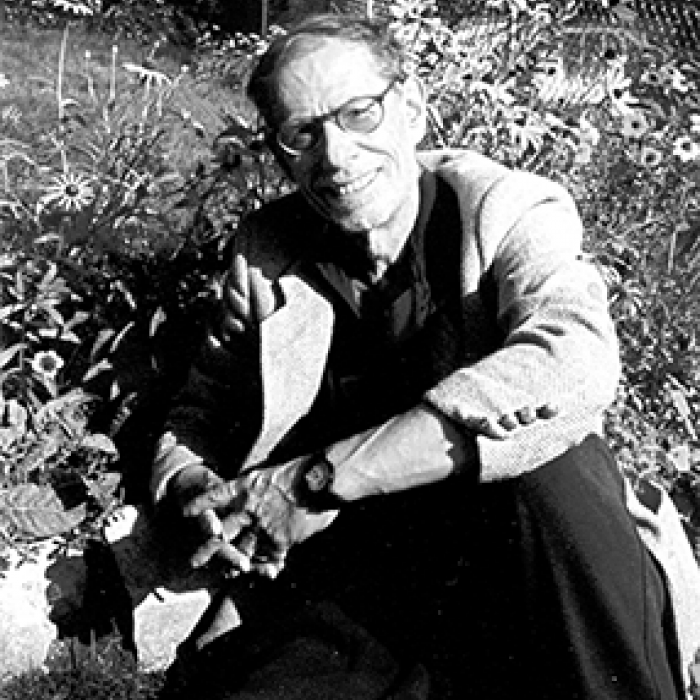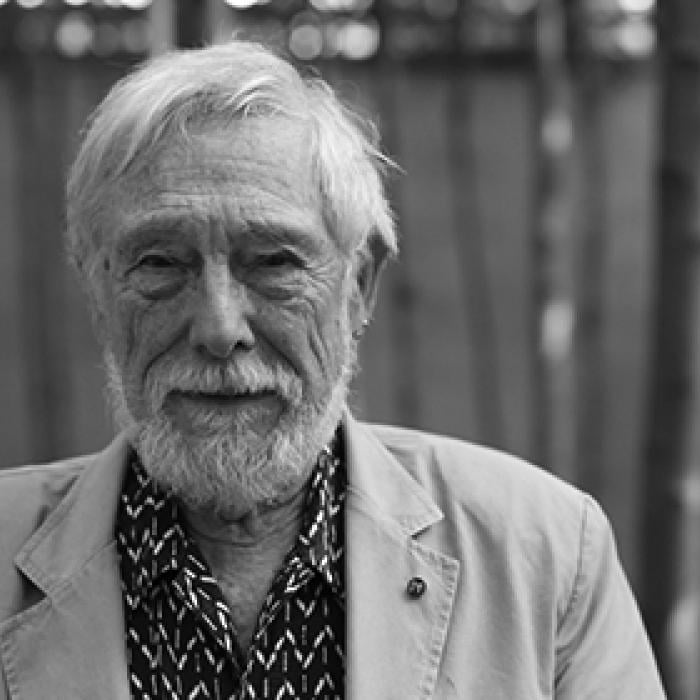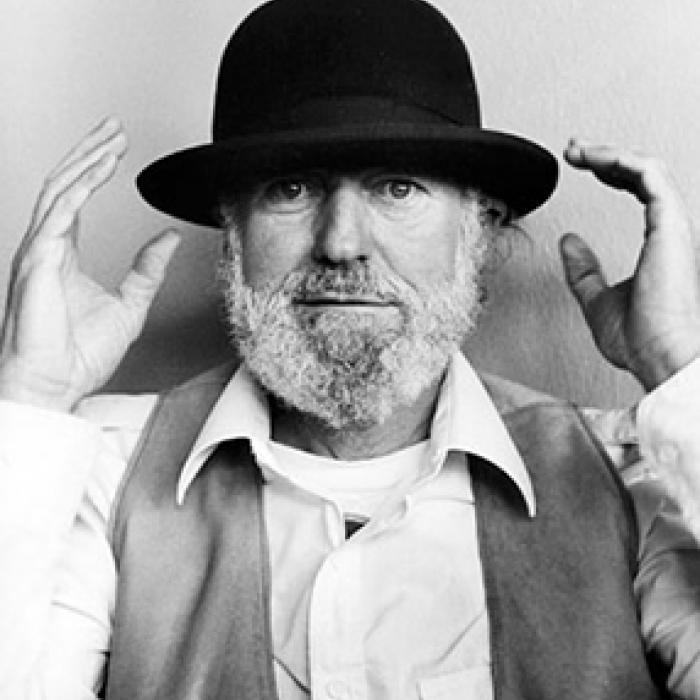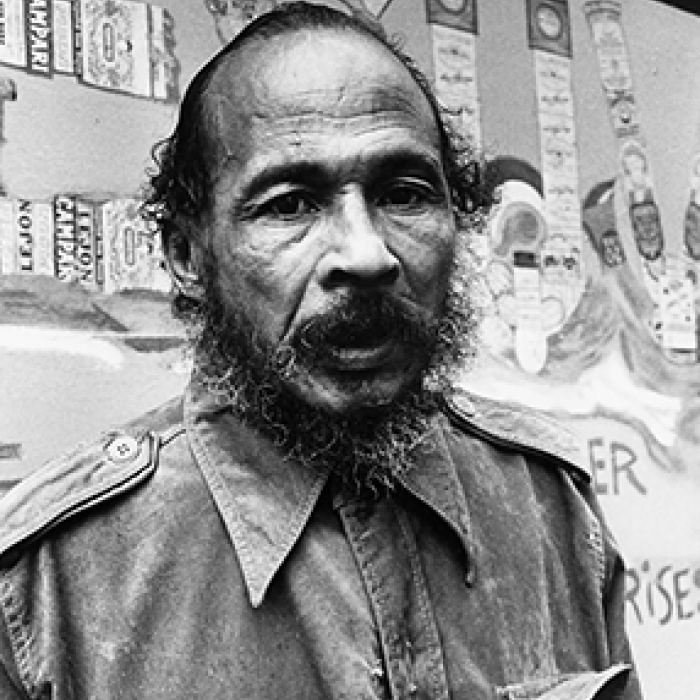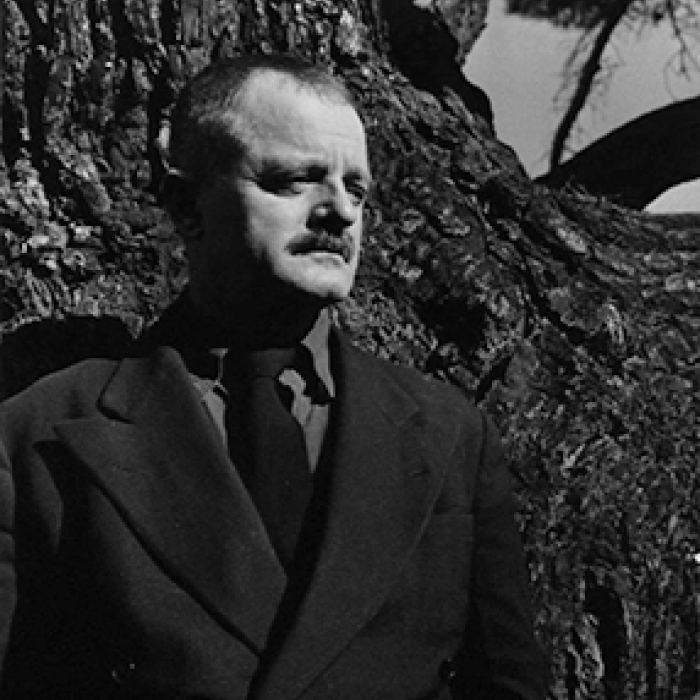Gregory Corso
Gregory Nunzio Corso was born in New York’s Greenwich Village on March 26, 1930, to teenage Italian parents. A year later, his mother moved back to Italy. After living in orphanages and foster homes, at age eleven Corso moved back in with his father, who had just remarried. After two years, however, he ran away; upon being caught he was placed in a boys’ home for two years. He also spent several months in the New York City jail while being held as a material witness in a theft trial. He was returned to his father, but after running away again was sent to Bellevue Hospital for three months “for observation.” At age sixteen, he began a three-year sentence at Clinton State Prison for another theft. While in prison, he read widely in the classics, including Fyodor Dostoevsky, Stendhal, Percy Bysshe Shelley, Thomas Chatterton, and Christopher Marlowe, as well as the dictionary; it was there that he also began writing poems.
In a Greenwich Village bar in 1950, the year of his release from prison, he met Allen Ginsberg, who introduced him to experimental poetry. In 1954, he moved to Boston, where again he devoted himself to the library, this time at Harvard University. His first published poems appeared in the Harvard Advocate that same year; and the publication of his first book, The Vestal Lady on Brattle and Other Poems (1955), was underwritten by Harvard and Radcliffe students. Corso worked at times as a laborer, a newspaper reporter for the Los Angeles Examiner, and a merchant seaman.
The following year he went to San Francisco, where he performed readings and interviews with Ginsberg and Jack Kerouac and became known as one of the major figures of the Beat movement. From 1957 to 1958 Corso lived in Paris, where he wrote many of the poems that became his book Gasoline, which Lawrence Ferlinghetti / City Lights Books published in 1958. From 1970 to 1974, Corso worked on a manuscript that was to be titled Who Am I Who I Am, but the manuscript was stolen. He did not issue another major work until 1981’s Herald of the Autochthonic Spirit (New Directions Publishing). Among other notable books are Bomb (City Lights Books, 1958), The Happy Birthday of Death (New Directions Publishing, 1960), Long Live Man (New Directions Publishing, 1962), Elegaic Feelings American (New Directions Publishing, 1970), and Mindfield: New and Selected Poems (Thunder's Mouth, 1989).
Corso traveled extensively, and taught briefly at the State University of New York, Buffalo, and for several summers at the Naropa Institute in Boulder, Colorado. (He was dismissed from the SUNY teaching position in 1965 for refusing to sign an affadavit certifying that he was not a member of the Communist Party.) He was married three times and had five children. Gregory Corso died on January 17, 2001, at the age of seventy.

